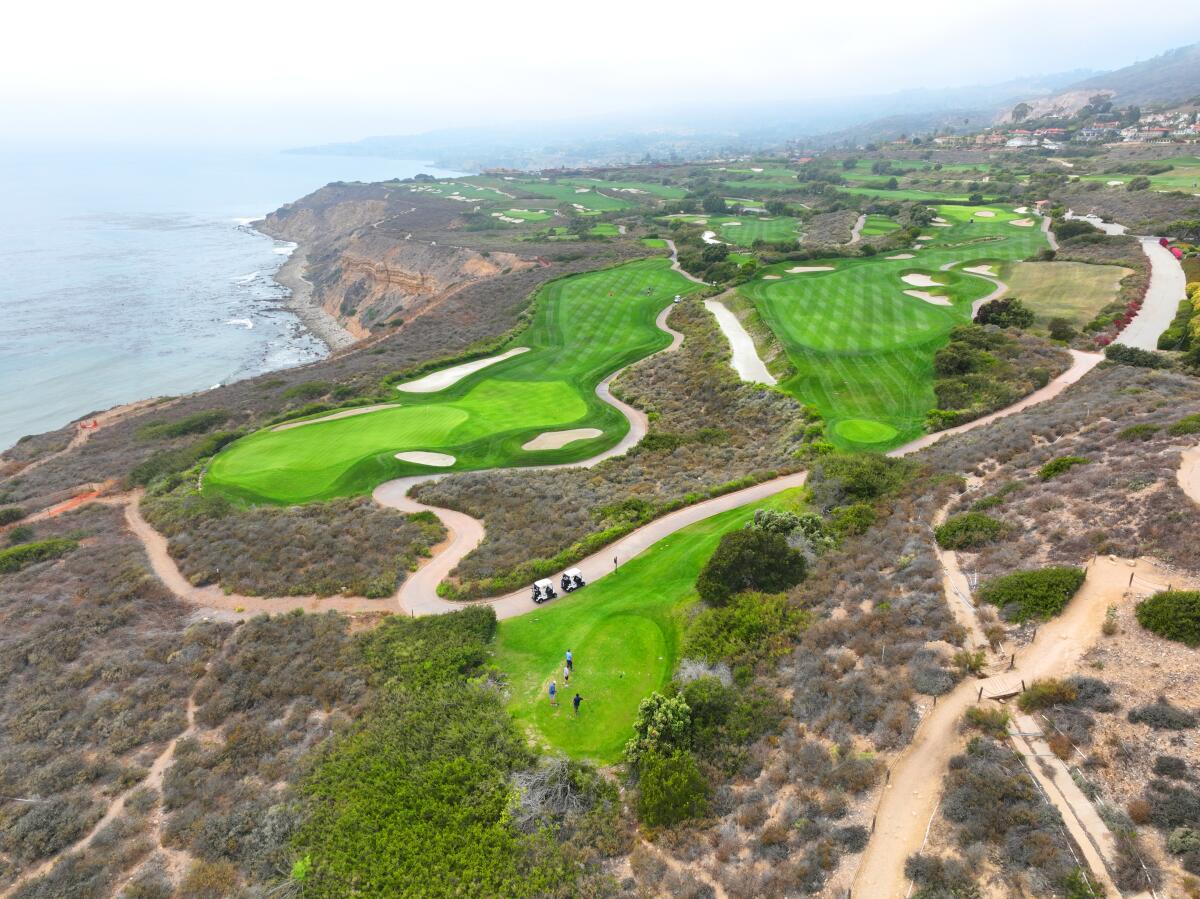Why you shouldn’t demonize golfers just because there’s a drought

- Share via
To the editor: Let’s not demonize golfers because we’re in a drought. (“SoCal’s lush golf courses face new water restrictions. How brown will the grass go?” June 13)
A golf course is not a “lush playground for the wealthy.” I can afford to pay $21 a week to play a round of golf with friends. It would cost more to go to a movie and eat a box of popcorn.
The call to “eliminate golf courses” because they are a “waste of space” is simply a lashing out for something to blame during these trying times. There are many more baseball, football and soccer fields in our communities than golf courses. Should we eliminate them? What would be done with that land?
If it’s anything like the trend in my community, it would be replaced by high-end condos that only the wealthy could afford, and they just might use more water, collectively, than the old course. Residents could sit inside and play on social media all day.
I prefer my socializing outdoors where I walk six miles with friends, sharing stories and observing nature. Each week we usually spot the vermilion flycatcher and a wide variety of other species of birds and glorious fauna.
I’m all in favor of employing measures to cut water usage on golf courses, but let’s not cut off our nose to spite our face.
John C. Wood, Pasadena
..
To the editor: Someone must tell the golfing public that their pastime is doomed to end soon unless they can play in the dirt and weeds.
It is absurd that we subsidize a “sport” that requires a couple of hundred acres of green grass that needs millions of gallons of water to stay green, while the city has far too little parkland for its taxpaying citizens. We do this so a select few people can slowly walk around a vast expanse of greenery, with lots of space between them, and hit a little ball into a hole.
Close all golf courses now and convert them into public parks with native flora and fauna.
William Bergmann, Hollywood
..
To the editor: As a family-run small business in a drought-stricken state, the La Cañada Flintridge Country Club, of which I am president, is very concerned about water use and climate change.
Southern California is the most densely populated metro area in the country, so each piece of green space is extremely important. Green spaces, which golf courses are, benefit not only golfers; they also help clean air pollution, cool the air, improve groundwater recharge, mitigate the heat-island effect and provide critical habitat areas and passageways for wildlife.
Three-quarters of all U.S. golf courses are open to the public. We see an important role to play as urbanization and climate change affect every aspect of our lives. Our golf course is fortunate in having reclaimed water for irrigation, and water reclamation on a grand scale can help mitigate the drought.
We are moving forward with climate and wildlife-friendly initiatives, such as solar power, native plantings, habitat restoration and tree planting. Along with using less water, we see this stewardship role as the future for golf courses.
Randy Dreyfuss, Los Angeles




